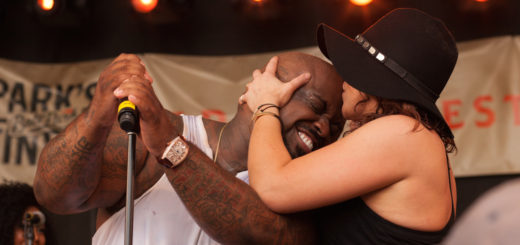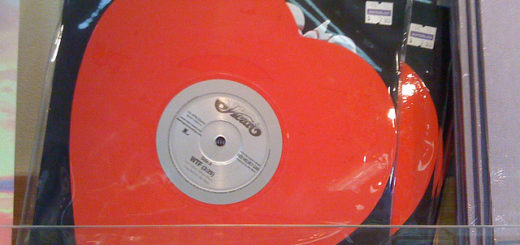A festival everyone can enjoy
 I had an unexpected realization during the Flaming Lips set at the Austin City Limits Music Festival. Watching the Oklahoma-based band closing their show with “Do You Realize??” I discovered tears steaming down my face. I was so embarrassed that I quickly donned my sunglasses, hoping no one noticed.
I had an unexpected realization during the Flaming Lips set at the Austin City Limits Music Festival. Watching the Oklahoma-based band closing their show with “Do You Realize??” I discovered tears steaming down my face. I was so embarrassed that I quickly donned my sunglasses, hoping no one noticed.
The song includes the following lyrics sung slowly by the Lips’ frontman Wayne Coyne:
“Do you realize” that everyone you know someday will die
And instead of saying all of your goodbyes” let them know
You realize that life goes fast
It’s hard to make the good things last … ”
Listening to the lyrics, I started thinking about how fragile our bodies really are. They bleed. Things break. They don’t especially enjoy the unaccustomed exercise of traipsing around Zilker Park for three days in the sun.
I spent a lot of time thinking about bodies and physical limitations while talking to people using the festival’s accommodations for people with disabilities. Yet it wasn’t until seeing the Flaming Lips play that song that I examined why I had chosen to write about this issue.
A dozen years ago, my father started using a wheelchair. Since then, I’ve spent considerable time determining what’s really accessible for a large man in a power chair. Thus, I often notice curb cuts, handicap bathrooms and well-located wheelchair ramps. In previous ACL visits, I’d noted the presence of accommodations mandated by the Americans with Disabilities Act.
Talking to consumers of ADA services at ACL was eye-opening. I chatted with people including: a couple from Boston on their honeymoon (with a service dog), a woman recovering from a kneecap-shattering injury, and Rod Kennedy, 80, founder of the Kerrville Folk Festival. Surprisingly, they were all fairly happy with the accommodations, with only one recurring complaint. Nearly everyone was frustrated that there were no longer portable bathrooms inside the viewing areas for the disabled, because it was sometimes difficult fighting the huge crowds in a chair to visit the facilities.
Otherwise, the people I talked to indicated that physical limitations don’t get in the way of having fun at ACL.
In addition to the accommodations for people with mobility issues, a number of performances were interpreted in American Sign Language (ASL). Sheepishly, I asked Barbie Parker, owner of Lotussign (the firm providing ASL interpreters) why deaf consumers go to concerts. “They come for the same reason we do” to hang out with like-minded people,” Parker said.
It looked like the ASL crowd had a great time, particularly during the highly visual shows from Muse and the Flaming Lips. At those sets, with everyone excitedly signing around me, I felt like I was at the coolest party ever ” except for feeling exceptionally awkward that I didn’t speak the language. I’ve communicated with non-English speakers everywhere from villages in Africa to an abandoned naval base in the former Soviet Union. Yet, as a non-signer, I’ve never felt so awkward around a group of people as I did around ASL speakers at the festival.
Watching ASL interpreter Amber Galloway, 33, perform for the wordless start to the Flaming Lips show, I was impressed by her artistry. The group of ASL speakers clustered around her appeared to be signing more excitedly at the moments when the roof of my own mouth was vibrating with the Lips’ low-end frequencies.
One of the more interesting comments I heard during the festival was from Aaron Terry, 38. When I was standing near the ASL interpreters, Terry leaned over the fence after Pat Green’s show and thanked me for what I was doing. After I clarified matters, he explained he how he liked the festival’s inclusiveness.
“I think it adds a total Austin vibe, because the concert is for everyone, including people you wouldn’t think it’s for, deaf people.”
I was struck by what he said, because it’s important to open up a festival experience to everyone. Our bodies don’t last forever. It’s important to appreciate the fleeting pleasures of life, like music and sunsets. The ADA accommodations at ACL help people do exactly that.
This story was also published in the Fall 2010 issue of The Deaf Texan.
.






















